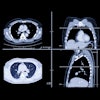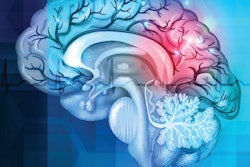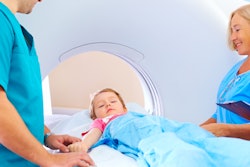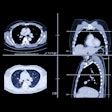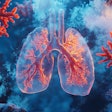
Could exposure to CT radiation increase the risk of brain tumors in kids? Yes, say researchers from the Netherlands, who reported a 1.5-fold increase in cancer incidence for children in an article published online July 18 in the Journal of the National Cancer Institute.
The group, led by principal investigator Michael Hauptmann, PhD, from the Netherlands Cancer Institute, had growing concerns about CT radiation exposure in children, who are typically more susceptible than adults to radiation-related malignancies. Recent research has also shown considerable variation in radiation dose for pediatric CT exams, further complicating the issue.
Evaluating the risk of radiation exposure in children, Hauptmann and colleagues reviewed cancer incidence, vital statistics, and other information for 168,394 pediatric patients who underwent one or more CT exams in a Dutch hospital between 1979 and 2012. They focused on the prevalence of leukemia and brain tumors, two of the more common malignancies caused by radiation exposure.
The overall incidence of cancer was 1.5 times higher than expected for the pediatric patients (after standardization to incidence rates from the general Dutch population). In addition, radiation dose to the brain had a statistically significant association with the development of benign and malignant brain tumors (at an excess relative risk per 100 mGy of 0.86; p = 0.002).
On the other hand, they observed no notable association between leukemia and CT radiation in bone marrow.
Though the results suggest a correlation between CT radiation exposure and brain cancer risk, the authors recognized that this elevated risk may have been skewed by the relatively higher incidence of brain tumors in the children who underwent CT exams compared with the general population.
"Nevertheless, our careful evaluation of the data and evidence from other studies indicate that CT-related radiation exposure increases brain tumor risk," Hauptmann said in a statement. "Careful justification of pediatric CT scans and dose optimization, as done in many hospitals, are essential to minimize risks."




